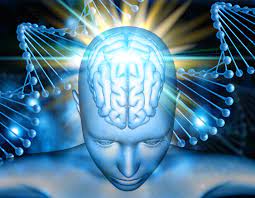Clinical depression is a serious psychiatric disorder that affects millions of people worldwide. It is characterized by a persistent feeling of sadness, low mood, and lack of activity for weeks or even months. The disorder is more common in women than in men and usually appears during the twenties. In this article, we will discuss one of the most common treatments for clinical depression - mirtazapine.
I. What is Mirtazapine?
Mirtazapine is a second-generation atypical antidepressant that is widely used to treat clinical depression. It was first approved by the FDA in 1996 and has since become one of the most prescribed antidepressants in the United States, with over 6 million prescriptions per year.
II. How Does Mirtazapine Work?
Mirtazapine increases the levels of two neurotransmitters in the brain - serotonin and noradrenaline. These two chemicals are responsible for regulating mood and emotions. Mirtazapine is an antagonist for the presynaptic receptors of both neurotransmitters, which means that it prevents them from being reabsorbed by the nerve cells. As a result, the levels of serotonin and noradrenaline increase, leading to a positive effect on mood and emotions.
III. Why is Mirtazapine Considered Atypical?
Mirtazapine is considered atypical because it works differently than other more classical antidepressants. For example, selective serotonin reuptake inhibitors (SSRIs) work by blocking the reabsorption of serotonin only. Mirtazapine, on the other hand, affects both serotonin and noradrenaline levels. This makes it an effective treatment for patients who have not responded to other more classical antidepressants.
IV. Is Mirtazapine Effective?
Yes, mirtazapine is highly effective in treating clinical depression. Several studies have shown that it is more effective than other more classical antidepressants, such as SSRIs. Mirtazapine has a high efficacy rate and is generally safe to use.
V. Can Mirtazapine Help with Insomnia?
Yes, mirtazapine can help with insomnia. In fact, it is often recommended for patients who have insomnia problems as it has a sedative effect and helps them to fall asleep. This is because mirtazapine affects histamine receptors in the brain, which can help promote sleep.
VI. What Are the Side Effects of Mirtazapine?
Like all medications, mirtazapine can cause side effects. The most common side effects include dizziness, drowsiness, dry mouth, and weight gain. However, these side effects are usually mild and go away on their own after a few weeks.
VII. Can Genetics Influence Tolerance to Mirtazapine?
Yes, genetics can influence a person's tolerance to mirtazapine and other medications. This is because genes can affect the way that the body metabolizes drugs. Some people may have genetic variations that make them more or less sensitive to mirtazapine. This is why it is important to talk to your doctor about any genetic concerns you may have before starting treatment.
VIII. Conclusion
Mirtazapine is a highly effective atypical antidepressant that is widely used to treat clinical depression. It works by increasing the levels of serotonin and noradrenaline in the brain, leading to a positive effect on mood and emotions. Mirtazapine is also recommended for patients who have insomnia problems as it has a sedative effect and helps them to fall asleep.















